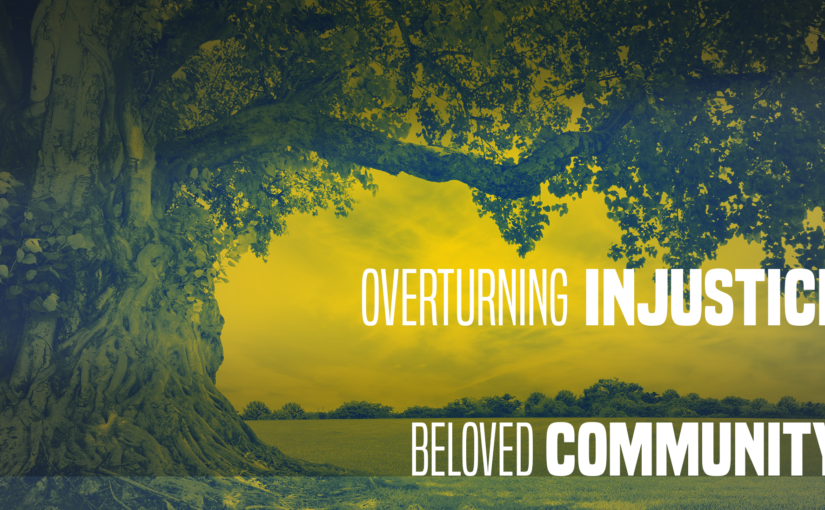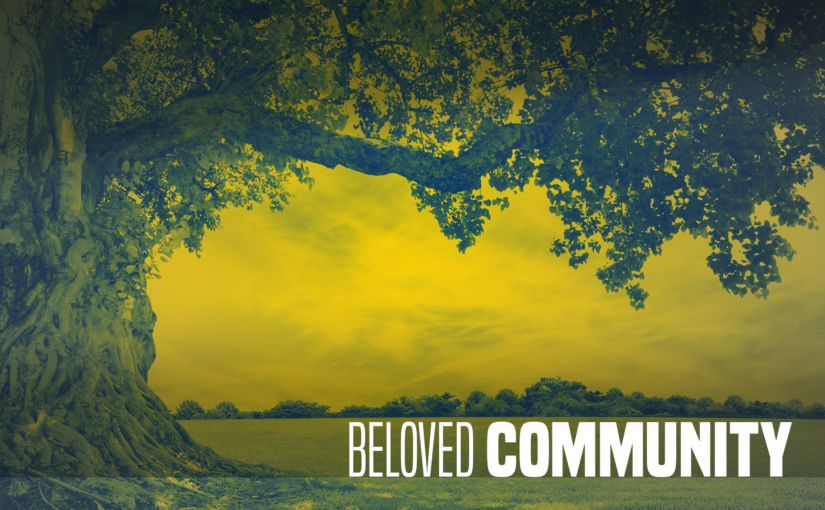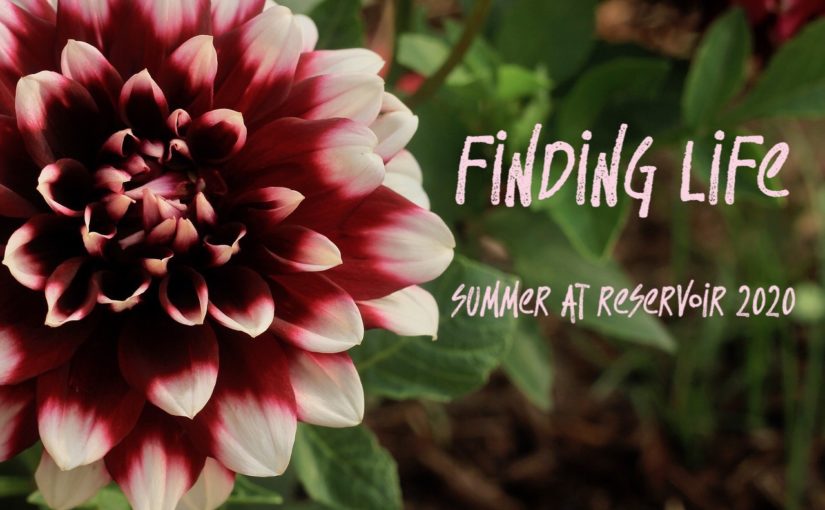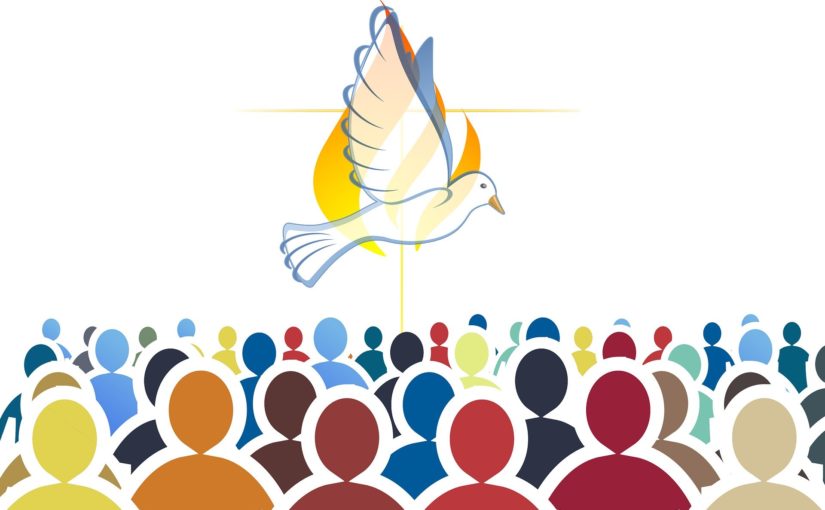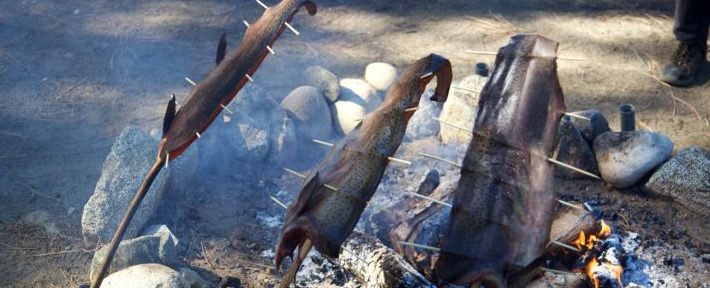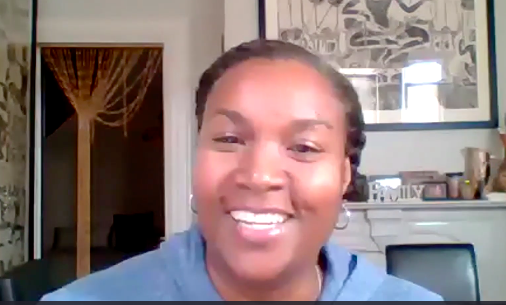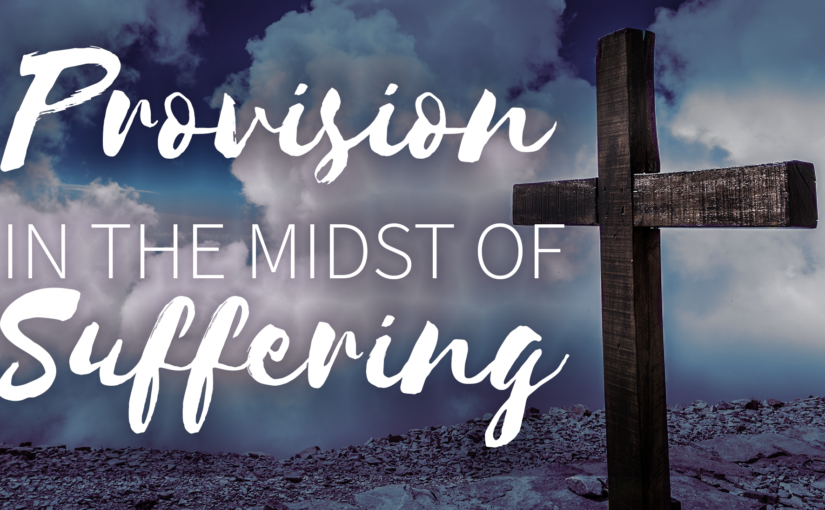For this week’s Events and Happenings at Reservoir, click “Download PDF.”
For this week’s spiritual practice led by Steve on praying the psalms, click HERE.
To view this week’s online worship service, click the YouTube link above.
Let me pray for us.
May the meditation of our hearts and minds be pleasing to you, Oh Lord my Breath, My Rock and My Redeemer. Amen.
I saw a meme a while ago that said, “The real miracle of Jesus is how he had 12 close friends in his 30’s.” It’s hard to make new friends in your 30’s. There was a woman I began to become friends with. She and I were about similar ages, in similar life stages and I awkwardly said to her one day, “Hey you want to hang out, like grab coffee or go for a walk together or something? If you want.” She said yes and we met up. It was delightful and nice to hang out with her. We started texting more, sending each other memes on facebook messenger, we video chatted. We dropped off cookies and goodies to each other’s houses. And then one day we had a weird text exchange. We were going back and forth on something and then I think I offended her and she withdrew and ended the conversation quickly. I had felt weird about it too. I texted her cautiously some time later, with a sheepish, “Hi! How have you been?” And she answered, “I’m ok. U?” And I replied a bit more extensively but she wrapped up the convo again quickly. After that, I thought, well I reached out. The ball’s in her court. And I didn’t hear from her for a while. I felt bad but wasn’t sure what was going on. We were a new friendship so I wasn’t sure how to move forward.
One day, she texted me with, “We need to talk.” I was like, okay, realizing something had gone wrong and we ended up talking on the phone about the last interaction. Honestly at the beginning, the “we need to talk” felt so confrontational. But I was glad she reached out. Cause we ended up sharing, even talking about how both of us were pursuing each other as a possible new friend. She was hurt and told me how I had made her feel. I didn’t know I had hurt her that much until she shared with me. She said, that after she was hurt, she was like, oh forget her. But then she said she looked at her baby daughter and wanted her to grow up learning, “Not as I say but as I do.” That cutting people off just because of one bad interaction is not the way and that she wanted her to have relationships and so she reached out to make it right. That touched my heart deeply because she took a chance, not knowing me too well, to open herself up to me and share her hurt with me. I was grateful that she had that thought and she reached out and didn’t just cut me out of her life because of one mistake I made. Her wisdom allowed us to lean into the conflict and resolve it.
Building a real friendship isn’t easy. It takes work and conflict is a part of it. We’ve been talking about building a Beloved Community here at Reservoir lately. This theme of beloved community is not just a cheesy lovey dovey talk but a real possibility of an open, inclusive, loving and equitable community. Rev. Dr. Martin Luther King Jr saw and spoke of this Beloved Community as the end goal to his fight.
The King Center describes it like this though,
“Dr. King’s Beloved Community was not devoid of interpersonal, group or international conflict. Instead he recognized that conflict was an inevitable part of human experience. But he believed that conflicts could be resolved peacefully and adversaries could be reconciled through a mutual, determined commitment to nonviolence. No conflict, he believed, need erupt in violence. And all conflicts in The Beloved Community should end with reconciliation of adversaries cooperating together in a spirit of friendship and goodwill.”
“No conflict, he believed, need erupt in violence.” MLK was an advocate of non-violence. And yet he recognized that non-violence is not the absence of conflict; in the absence of conflict there is violence. There’s a difference.
What does a beloved community look like? It’s not just unity or peace. It’s much more dynamic and real than that. It can get messy and difficult at times. Like real love, it’s not just a place where everyone gets along because everyone plays along. It’s you stepping into my space, and me getting into your head, it’s people making space for one another, it’s a beautiful dance.
Here’s another example from their instagram post, @blackliturgies:
“Being ‘Christianly’… has all too often become synonymous with politeness.
To me, nothing is more Christian than breaking the hands of injustice that are strangling my brother.
Don’t tell us to calm down when we’re saying I Can’t Breathe.”
@blackliturgies
And they offer a prayer in this regard
Protector God,
We confess that we have diluted what it means to be Christian (community) with a person’s (group’s) capacity for niceness. We have smothered afflicted voices with shallow proclamations of peace and unity. Instead of listening well, we police how a person cries out without hearing the very words they are crying. But we are grateful, Lord, that you don’t ask us to be nice, but to do mercy and justice. Help us to redefine our peacemaking, that it would be known as that holy kindness which brings the fire of justice and a torrential truth-telling to all in its path. Make us people more concerned with protecting life than protecting the image of Christianity, which need not be protected. Bless our screaming, our weeping, our marching, our fight– that our pain would no longer be invalidated by how it moves when we’re gasping.
Amen.
Do we have the love to really hear? When someone says in a pained voice, “we need to talk” do we make space for them to tell us what they really think?
Do we just want things nice and quiet or do we really love one another to listen to each other, especially to those that are hurting, oppressed, crying out and saying, it hurts, we’re dying, stop.
No conflict, he believed, need erupt in violence. Jesus showed us a picture of this too, in
John 2:13-16.
Let me read it for us
13 When it was almost time for the Jewish Passover, Jesus went up to Jerusalem. 14 In the temple courts he found people selling cattle, sheep and doves, and others sitting at tables exchanging money. 15 So he made a whip out of cords, and drove all from the temple courts, both sheep and cattle; he scattered the coins of the money changers and overturned their tables. 16 To those who sold doves he said, “Get these out of here! Stop turning my Father’s house into a market!”
Wow, a whip out of cords? Overturned their tables? Jesus! Anger management much?
The Jewish passover was a big deal where all the people from the surrounding lands would travel to Jerusalem for temple worship. With it came over time culture and structures that some people began to exploit, those who were less fortunate, through this tradition. The cattle, sheep, and dove sellers figured out that the travelers couldn’t travel with their animal sacrifices, because the laws also required them to be fresh. So when they arrived to Jerusalem, they had no choice but to purchase the hiked up priced animals. Money exchangers gouged people with this holiday and it had become too normal.
I’ve heard messages from this text to be about how you shouldn’t sell girl’s scouts cookies at church. That Jesus was mad because they were “turning house of prayer into a marketplace”. But it wasn’t just about neutering church from money. In fact, Jesus talks about money quite a bit. He was talking about, not forgetting about money, but economic justice and what that should look like.
I still can’t believe this story though. Jesus has always been painted for me as the nice kind man, who welcomed children, healed, forgave. These kinds of texts where Jesus is being so extra didn’t really take the front seat. And in that sense, I think sometimes we make Jesus into a 2 dimensional character. When he was actually very fully human, with emotions, that interacted with real people. There’s a record of Jesus even crying, in public. When was the last time you’ve shown tears in public? Sometimes he didn’t answer people’s questions, which is rude. Sometimes he’d just walk away without telling anyone. Sometimes he rebuked people. In fact the text before this story in Matthew and Mark, I always like looking around the text, you will be thoroughly confused. I didn’t include it, although it kind of goes together with today’s text because I don’t have time to get into it, and well, I’m confused by it too! He tells a fig tree to die, because it didn’t bear fruit. But the text says, it wasn’t fig season. Like, Jesus, did you not know that? What’s your deal? Jesus comes off harsh in some of these texts! How do we make sense of this?
We forget sometimes, because Christianity can feel so sweet and nice, how actually radical the message of Jesus is. Remember, Jesus was targeted and executed. We worship a God who was murdered by the state publicly. So many people followed him, and interestingly enough, they were the outcasts, the oppressed, the poor, the widow, the women, but so many also hated him, which happened to be those in power. He challenged everything, the system, the culture, the politics, the economic set up of the day. He spoke of things many people did not want to hear.
Are we willing to listen? How has Jesus challenged you? How is the message of Jesus challenging you these days, rather than just making you happy? How is Jesus overturning things that have always been, things that are comfortable, and causing trouble? Is the message of Jesus a nice addon to your best life now or is he shaking you up a bit?
What about the people who are doing that in our lives? Now I’m not saying just cause people hate you that you’re doing God’s work. The people that ask us the hard questions. The people who bring tears and anger, and not just pleasantries to our community group. The people who make things real and raw, and sometimes uncomfortable for us.
And even church, if your church always makes you feel good and upbeat, if you’re always leaving at the end of worship service feeling only encouragement, I really wonder what that says about your church. Religion isn’t for feel goods. That’s a watered down version of a religion. Sometimes the message of Jesus tears our heart out and we’re left with discomfort and questions, and anger, and disappointment rather than always with hope. And God is present in the unknown, a deep dark void with no answers, only tears. Even there, I believe, God is still there.
Do you feel that way sometimes? That God isn’t answering. Or God isn’t showing you the happy ending? What’s the good of this, God? And all you hear is silence? You see the world filled with injustice and people aren’t getting along, and it just seems uglier and uglier, and you just feel like flipping tables and you have no answers. God is there.
We had our Reservoir’s Equity Diversity and Inclusion survey report go out this past week in our weekly emails. We call the team REDI for short. The team was commissioned by the board to think more deeply about EDI at our church and to serve as an advisory committee to the board, staff, and the leaders of our church. I’m on the team. It’s been a humbling experience because while our church is already very diverse and really a beautiful place of genuine connection and belonging for many people, it does not exist in a vacuum but within the very confines of the systemic injustice we see everywhere else, racism, sexism, discrimination, and estragement. Can I say something you don’t want to hear?
I’ve felt this. This is not just a criticism of our church, or organization, or our people. It’s just honestly, reality. Story of my life.
I’ve been called chingchong in the parking lot of our church campus. I’ve been grazed on my butt creepily by a man in our chapel. I’ve been called an inappropriate sexualized term towards women that made me feel extremely uncomfortable. Those are just a few examples of more overt ones, not to mention others that are more subtle that I’m not even sure about but I go home pondering about the interactions because i’m a woman of color. Are you surprised? Do you believe me or question the context of the incidents that I’m referring to?
I’m taking an EDI certification course online these days and it’s helpful because I realize it’s not all in my head or I’m taking things personal. Studies show that unconscious bias, bias we don’t mean, influence the way people are treated. Same behavior by a man and a woman gets evaluated differently. For example, men who speak up are rewarded with 10% more competence points whereas women get a 14% lower rating for speaking up in meetings. I could go on with facts, but I won’t. Cause you’ve heard them and you can hear them anywhere else on podcasts and stuff, but I mention it here, in a sermon. I could be overturning tables instead though. I feel uncomfortable mentioning edi data in a sermon. I’m supposed to encourage you and give you hope for your week in a sermon. But this is all a part of what it looks like to be a Beloved Community. Not just inspiring one another, but being able to bring conflict and honesty towards real equitable transformation of our community. Some of us are echoing edi facts. Some of us are crying out. Some of us are flipping tables.
Church, are we listening?
Let me pray for us.
Jesus, why did you get so mad at the temple? Did you have to resort to violence? We’ve seen to turn the other cheek, accept undeserved judgement of execution on the cross. We know you opened your arms and said, father forgive them? What are in between these stories? Help us to know you more deeply, more completely, through the stories of the Bible, to the core of your heart and your mission. Humble us to see you, to hear you, and to follow you, not a 1 dimensional Jesus that sometimes we water you down to be, but a real personal relational God who deeply engages this world, deeply cares, and deeply loves us. Give us the eyes to see, and the ears to hear we pray. Amen.


